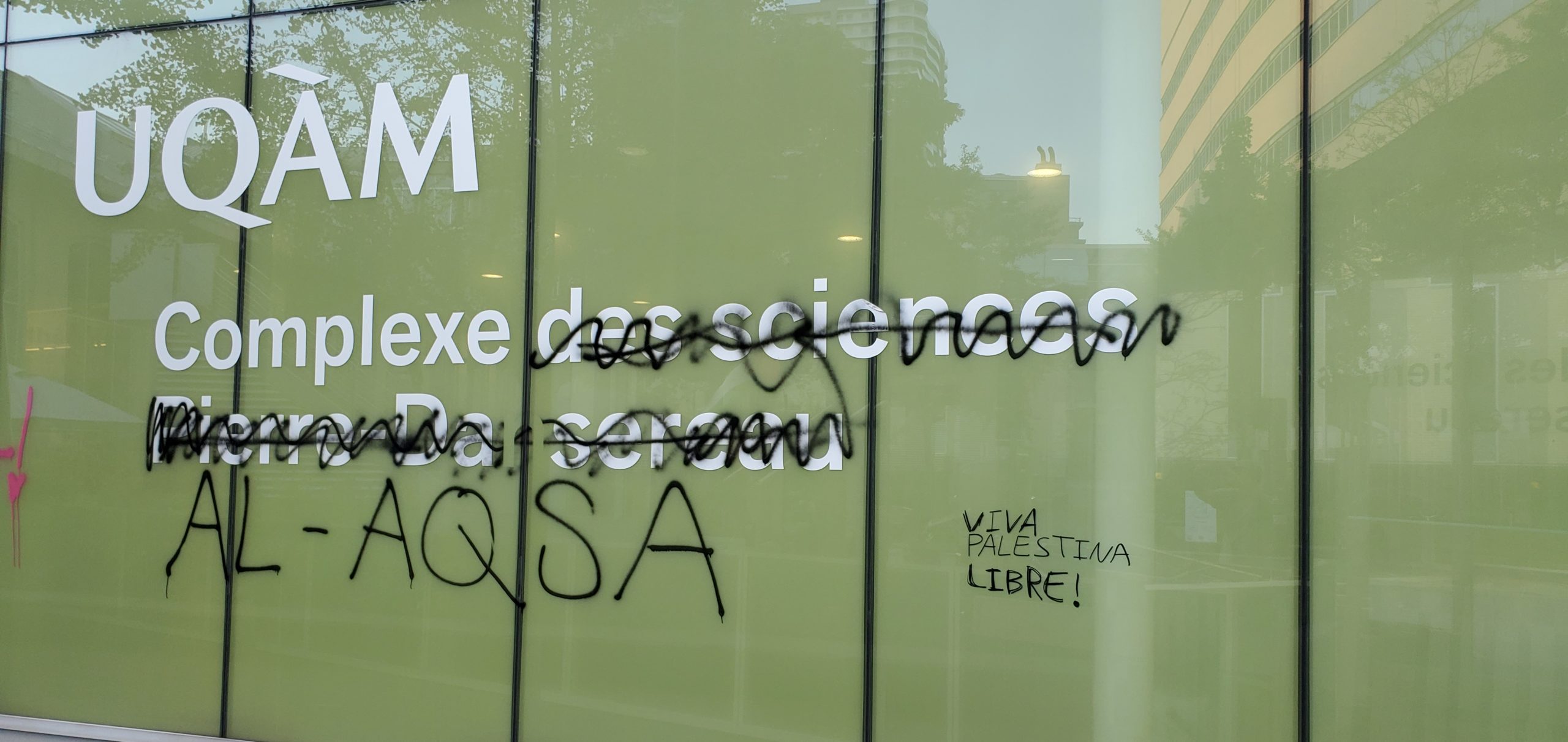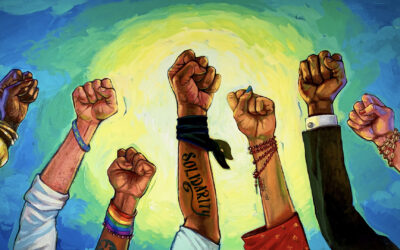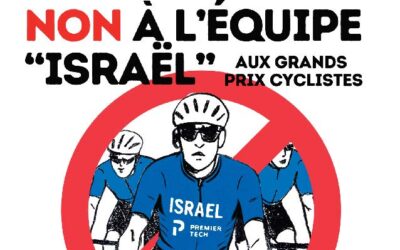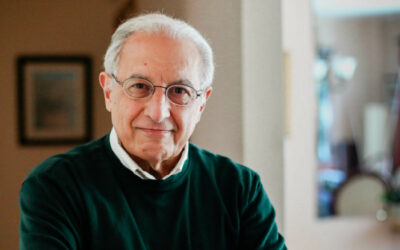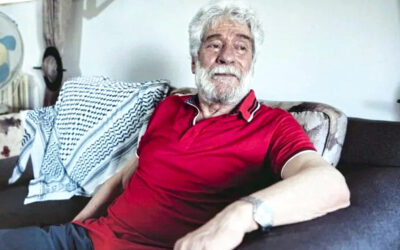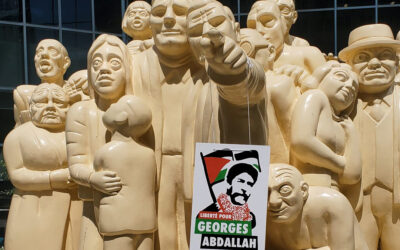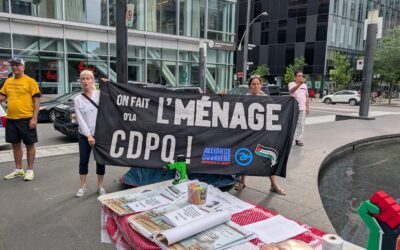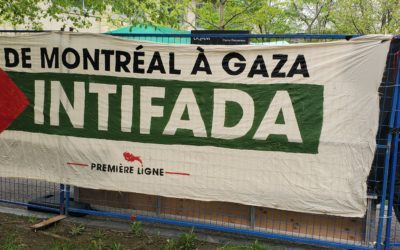The dice were loaded in advance against the UQAM camp. From the first moments of the Superior Court hearing where Judge Louis-Joseph Gouin heard the university’s request for an injunction to dismantle the encampment setup in mid-May, he declared “I would be surprised to completely reject the emergency injunction without doing anything else’’.
To hell with facts and justice.
Indeed, among the necessary criteria when requesting a provisional injunction, the requesting party must demonstrate the urgency of a situation. Thus, it must be demonstrated that the Court’s emergency intervention is necessary and that the plaintiff is acting diligently in making the request.
In the McGill case, Judge Marc St-Pierre refused McGill University’s request for an injunction to dismantle the pro-Palestinian encampment setup on its downtown campus.
He ruled that the institution had not proven that the situation at the camp was sufficiently urgent to justify the issuance of an order to force the evacuation of the land.
The situation raised complex questions due to the confrontation of two fundamental rights – in this case, the freedom of expression of the demonstrators against the property rights of McGill University. He added that it was necessary to have a broader debate on the issue, in particular to determine whether a “peaceful occupation” should fall within the right to freedom of expression.
Justice St-Pierre
According to Justice St-Pierre, the situation raised complex questions due to the confrontation of two fundamental rights – in this case, the freedom of expression of the demonstrators against the property rights of McGill University. He added that it was necessary to have a broader debate on the issue, in particular to determine whether a “peaceful occupation” should fall within the right to freedom of expression.
“The issue is important and complex so that a more in-depth analysis than is normally done in the context of an emergency injunction is desirable,” he wrote.
Yet in both cases, the facts are the same
At first glance, it would be possible to think that UQAM’s request for an injunction was more “reasonable” than that of McGill because it does not require the complete demolition of the encampment, only its restriction. However, if UQAM’s requests were granted, it would de facto mean the dismantling of the camp.
Furthermore, according to the evidence by the lawyers who represented the camp, the fears expressed by UQAM were “only hypothetical”. Indeed, the demonstrators “created emergency exits in accordance with the instructions of the Montreal Fire [safety] Service” from May 20th, and security measures were taken at the encampment, where a “spirit of collaboration and listening’’ exists.
“The emergency seems very meagre to us.”
M e Émilie E. Joly
In this context, “The emergency seems very meagre to us,” added lawyer M e Émilie E. Joly, for the UQAM Teachers Union, describing the camp as a calm and serene place.
However, the main argument put forward by the lawyers representing the rector of UQAM, Stéphane Pallage, to justify this legal action initiated with public funds was the private property rights of UQAM over the space occupied by the campers. The irony in the rector’s positioning is difficult to ignore….
Furthermore, in their arguments to the court, the two university administrations raised the same scarecrows to call for the dismantling and the urgency of the situation: graffiti, masked people, people present who were not students, barricades, doors and accesses blocked.
Double standards
How is it possible that Judge Gouin was then able, from the first moments of the hearing, without even having heard or read the facts, rule that he had to grant the emergency injunction to UQAM? What is the difference between the case of McGill and that of UQAM to justify such a hasty judgment?
In an article in Le Devoir, entitled “ Mêmes buts, traitements différents pour les campements pro-Palestine en Amérique ” the author, Stephanie Marin, explores the different treatment of authorities between American campuses and Canadian campuses.
She writes: “Until now, encampments have remained in place in Canadian cities, a contrast to images from the United States which show riot police arriving on campuses to arrest many students and tear down tents.”
At the time of publication of the article (May 2), the UQAM camp had not yet been erected. However, following recent developments, would it be possible to see another border emerge, more invisible, but just as revealing?
A New York Times article published on May 24th seems to shed light on the question. It describes how, in recent weeks, police and university administrations have clashed with pro-Palestinian protesters on dozens of college campuses, arresting students, removing encampments and threatening academic consequences. In total, more than 2,900 people were arrested or detained on campuses nationwide.
In the State of New York alone, more than 535 people were arrested and of that number, 63% of those arrests took place at public universities. The exercise is far from scientific but it can still help us understand certain realities that the Montreal movement of solidarity with Palestine must face.
Political and social profiling:
”Security” for some, Repression for others
During the UQAM hearing, Judge Gouin trumpeted in front of everyone that, in his opinion, the City of Montreal police officers had put on their white gloves when it came to the treatment of students at the McGill camp.
“The role of police officers in such a situation is to ensure peace, good order, the safety of people, while respecting the rights and freedoms.”
SPVM
Moreover, following the McGill judgment, the SPVM recalled “that the role of police officers in such a situation is to ensure peace, good order, the safety of people, while respecting the rights and freedoms.”
In contrast to this positioning of ” order, security and respect for rights” for the McGill encampment, the SPVM deployed its riot arsenal for the dozens of pro-Palestinian demonstrators who had called for a family pic-nic at the intersection of St-Urbain and Président-Kennedy streets, on May 20th during the Journée des partriotes.
Videos circulating on social networks show police teams bringing out their heavy artillery dressed as robocop, slamming on their shields and even firing tear gas projectiles directly at the people present. People have received it on the chest, on the legs and in the face.
In one of the clips circulating , a police officer takes the threat even further by saying: ”It’s going to hurt when we go in there. In any case, it’s sure it’s going to hurt’’, referring to the moment when the police will have the green light to dismantle the camp.
However, in these same video clips, we can clearly hear the demonstrators chanting “peaceful protest”.
The history of UQAM, a popular history
The history of UQAM is one of popular mobilization and democratization of education previously reserved for Quebec’s elites. Indeed, as Carl Robichaud points out in an article published as part of UQAM’s 50th anniversary on the website of the Syndicat des Étudiant·es Employé·es de l’Université du Québec à Montréal SETUE, the very birth of UQAM was founded on popular protest.
He recalls that the opening of UQAM followed the creation of CEGEPs in 1967. “With the democratization of education, the number of pre-university students explodes and places in French-speaking universities are woefully insufficient. At least 65% of students enrolled in pre-university programs will not be able to enter university the following year. In 1968, a major mobilization movement in favor of the establishment of a second French-speaking university was launched by students from the CÉGEP Lionel-Groulx. The movement will seek to force the government’s hand by occupying Quebec’s educational institutions.”
UQAM and the University of Quebec network are the direct result of these occupations, demonstrations and social mobilizations.
Over the years, these university spaces will continue to mark history through union, worker, feminist, environmentalist and anti-racist struggles, including those against Apartheid in South Africa.
In all these struggles, university administrations, the legal system and police forces have too often found themselves on the wrong side. Is it a surprise that they are still on the wrong side today in the heart of a televised genocide broadcast everywhere on a global scale?
Palestine and the political compass
It has often been said that the Palestinian struggle is a real political compass which is found at the intersection of several struggles, whether decolonial, anti-racist, ecological, economic class struggles as well as feminist struggles to name just a few.
In light of these realities and the different treatment on the part of the administrative, judicial and police authorities between the two camps, the Palestine solidarity movement must work to bring these different struggles together in a deliberate and intentional manner. Indeed, it is through this convergence that the movement will establish the balance of power necessary to change the course of history and contribute to putting an end to the genocide of the Palestinian people.
In an interview with University Affairs Magazine, a camp activist nicknamed Leila Khaled said: “It’s refreshing what’s happening in the camps at the moment, it shows that our compass towards justice and the self-determination of peoples is still alive, despite everything”.
For Palestinian and Jewish Unity (PAJU), injunction granted or not, we will fight as long as it takes to ensure that our university spaces remain open and public spaces of protest and popular mobilization, especially in the context of genocide. . Whether these spaces are elite or popular spaces, as Christian Le Guillochet said:
“We must create action, because action creates movement, and movement leads to more individuals.”
As Palestinian and Jewish Unity (PAJU), we are both honoured and very proud to participate in this movement and the campers who sacrifice their comfort to advance the struggle of solidarity with Palestine are part of our list of heroes.
We won’t give up. Palestine will live! Palestine will win!
